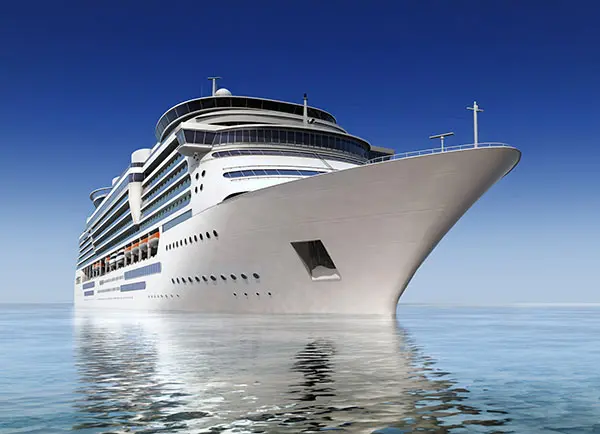Miami Cruise Line Negligence Attorneys
Helping Victims of Cruise Line Negligence Throughout the State of Florida
 Cruise lines promise an escape to paradise but often deliver troubled waters with no life raft. Rapes, murders, passengers who fall overboard or disappear, assault, sexual assault, theft, drowning, falls and many other misadventures occur on cruise ships with a frightening degree of regularity.
Cruise lines promise an escape to paradise but often deliver troubled waters with no life raft. Rapes, murders, passengers who fall overboard or disappear, assault, sexual assault, theft, drowning, falls and many other misadventures occur on cruise ships with a frightening degree of regularity.
With millions cruising each year on board these floating cities – devoid of any governmental authority to ensure adherence to the rule of law and with a stunning dearth of safety standards – there are a multitude of serious injuries and a number of fatalities each year. Yet, holding cruise lines accountable for the harm that they cause demands an experienced cruise line lawyer.
The challenges to pursuing a claim for a plaintiff begin immediately after the crime or accidental injury occurs. Following an injury, the cruise lines whirl into defensive action. Although employees receive scant training in preventing crimes or accidents, they are well trained in how to avoid liability for them. Security personnel and other employees may rush to the scene of an injury under the guise of rendering highly solicitous aid but have an agenda that is far more akin to that of an insurance company adjuster or investigator than to the traditionally protective role of a genuine security officer. They endeavor to take statements from injured passengers that will undermine the viability of any future claims. Security personnel also studiously avoid preserving the identities of any witnesses who might later have been inclined to support the plaintiff’s case. Photographs which document defective or dangerous conditions are also rarely taken. So, if you, your friends or family members have not taken such photos, absent the existence of security surveillance video recordings, you will not typically have photographic evidence on which to rely in litigation. An experienced cruise ship lawyer is able to navigate these issues and successfully prosecute your claim.
You Don’t Have Much Time and You Must File in South Florida
Your cruise line ticket is not just a document used to board the ship. It has numerous right enumerating and right restricting provisions that constitute a binding maritime contract. The ticket contains critical information regarding where your lawsuit must be filed, notice of claim requirements and the applicable statute of limitations.
Although the statute of limitations in a general maritime action is three years from the date of incident, most passenger cruise line contracts limit the statute of limitations to one (1) year from the date of incident and further require that the cruise line be given notice of your claim within six (6) months of the relevant event.
These contracts also have forum selection clauses that dictate where suit must be filed if a claim is made. Most of the major cruise lines that travel to and from the United States – including Carnival, Royal Caribbean and Norwegian Cruise Lines – require that suit be filed in the Southern District of Florida. In other words, suit must be filed in federal court in Miami. There are, however, some exceptions that require filing on the West Coast, in Los Angeles or Seattle. Disney requires suit to be filed in Orlando, Florida. It is, therefore, essential that the complete ticket be reviewed by an experienced cruise line attorney as soon as possible to preserve your legal rights. Failure to comply with these contractual provisions can result in a dismissal of your case and prevent you from recovering just compensation.
The Governing Law Varies with the Incident’s Location
Almost all cruise line contracts state that maritime law will govern any claims made. However, courts will apply a two part test, which focuses on (1) whether the injury occurred on navigable waters and (2) whether there is a significant connection or nexus to maritime activity, in order to determine whether admiralty jurisdiction will apply to a lawsuit sounding in tort. If the injury occurs on land, it must still have been caused by a vessel on navigable waters for admiralty to apply. Jerome B. Grubart, Inc. v. Great Lakes Dredge & Dock Co., 513 U.S. 527 (1995), see also, Admiralty Extension Act, 46 U.S.C. § 30101. When maritime law either does not address a given issue or does not conflict with state law, state law may be invoked to supplement maritime law. See Yamaha Motor Corp., U.S.A. v. Calhoun, 516 U.S. 199 (1996); Coastal Fuel Mktg., Inc. v. Fla. Express Shipping Co., 207 F.3d 1247 (11th Cir. 2000).
Accidents abound aboard the high seas. Shore excursions are commonly operated by unqualified vendors in third-world countries who have not been investigated and vetted by the cruise line. These vendors use ill-maintained and dangerous boats, jet-skis, scuba diving gear and equipment which can result in a variety of serious injuries.
The ship’s doctors and medical staff often do not pass muster. Even though you purchased your ticket from a United States corporation, the ship’s medical staff generally does not have the requisite training expected of American health care providers and their inadequacies can result in medical malpractice.
Cruises also promote excessive indulgence in pleasure seeking activities of all kinds, including the consumption of alcohol. Cruise lines have bars in every nook and cranny of the ship and want passengers to consume plenty of alcohol. While the cruise lines load their ships and passengers with plenty of alcohol, they provide a dearth of security. A ship carrying over 2,000 passengers and hundreds of crew members will often have only a handful of security officers – sometimes less than 10 – who may have no law enforcement experience or training. This is, of course, a formula for disaster. Consequently, assaults, sexual assaults, robberies and even murders occur on board ships.
A variety of dangers can befall cruise line passengers. If you or a loved one has been injured onboard, contact our experienced Miami Cruise Line Negligence Attorneys at the Boyers Law Group at 800.545.9100 to discuss your case and receive a free consultation.
